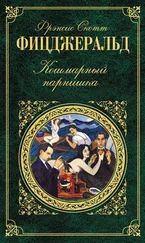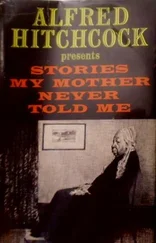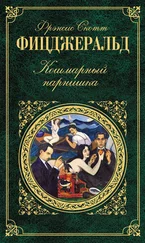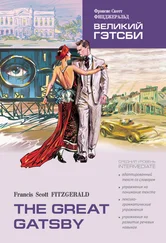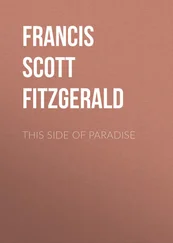Фрэнсис Фицджеральд - This Side of Paradise
Здесь есть возможность читать онлайн «Фрэнсис Фицджеральд - This Side of Paradise» — ознакомительный отрывок электронной книги совершенно бесплатно, а после прочтения отрывка купить полную версию. В некоторых случаях можно слушать аудио, скачать через торрент в формате fb2 и присутствует краткое содержание. Год выпуска: 2014, Издательство: epubBooks Classics, Жанр: Классическая проза, на английском языке. Описание произведения, (предисловие) а так же отзывы посетителей доступны на портале библиотеки ЛибКат.
- Название:This Side of Paradise
- Автор:
- Издательство:epubBooks Classics
- Жанр:
- Год:2014
- ISBN:нет данных
- Рейтинг книги:5 / 5. Голосов: 1
-
Избранное:Добавить в избранное
- Отзывы:
-
Ваша оценка:
- 100
- 1
- 2
- 3
- 4
- 5
This Side of Paradise: краткое содержание, описание и аннотация
Предлагаем к чтению аннотацию, описание, краткое содержание или предисловие (зависит от того, что написал сам автор книги «This Side of Paradise»). Если вы не нашли необходимую информацию о книге — напишите в комментариях, мы постараемся отыскать её.
This Side of Paradise — читать онлайн ознакомительный отрывок
Ниже представлен текст книги, разбитый по страницам. Система сохранения места последней прочитанной страницы, позволяет с удобством читать онлайн бесплатно книгу «This Side of Paradise», без необходимости каждый раз заново искать на чём Вы остановились. Поставьте закладку, и сможете в любой момент перейти на страницу, на которой закончили чтение.
Интервал:
Закладка:
"It's true," Burne agreed. "The light–haired man is a higher type, generally speaking. I worked the thing out with the Presidents of the United States once, and found that way over half of them were light–haired—yet think of the preponderant number of brunettes in the race."
"People unconsciously admit it," said Amory. "You'll notice a blond person is expected to talk. If a blond girl doesn't talk we call her a 'doll'; if a light–haired man is silent he's considered stupid. Yet the world is full of 'dark silent men' and 'languorous brunettes' who haven't a brain in their heads, but somehow are never accused of the dearth."
"And the large mouth and broad chin and rather big nose undoubtedly make the superior face."
"I'm not so sure." Amory was all for classical features.
"Oh, yes—I'll show you," and Burne pulled out of his desk a photographic collection of heavily bearded, shaggy celebrities—Tolstoi, Whitman, Carpenter, and others.
"Aren't they wonderful?"
Amory tried politely to appreciate them, and gave up laughingly.
"Burne, I think they're the ugliest–looking crowd I ever came across. They look like an old man's home."
"Oh, Amory, look at that forehead on Emerson; look at Tolstoi's eyes." His tone was reproachful.
Amory shook his head.
"No! Call them remarkable–looking or anything you want—but ugly they certainly are."
Unabashed, Burne ran his hand lovingly across the spacious foreheads, and piling up the pictures put them back in his desk.
Walking at night was one of his favorite pursuits, and one night he persuaded Amory to accompany him.
"I hate the dark," Amory objected. "I didn't use to—except when I was particularly imaginative, but now, I really do—I'm a regular fool about it."
"That's useless, you know."
"Quite possibly."
"We'll go east," Burne suggested, "and down that string of roads through the woods."
"Doesn't sound very appealing to me," admitted Amory reluctantly, "but let's go."
They set off at a good gait, and for an hour swung along in a brisk argument until the lights of Princeton were luminous white blots behind them.
"Any person with any imagination is bound to be afraid," said Burne earnestly. "And this very walking at night is one of the things I was afraid about. I'm going to tell you why I can walk anywhere now and not be afraid."
"Go on," Amory urged eagerly. They were striding toward the woods, Burne's nervous, enthusiastic voice warming to his subject.
"I used to come out here alone at night, oh, three months ago, and I always stopped at that cross–road we just passed. There were the woods looming up ahead, just as they do now, there were dogs howling and the shadows and no human sound. Of course, I peopled the woods with everything ghastly, just like you do; don't you?"
"I do," Amory admitted.
"Well, I began analyzing it—my imagination persisted in sticking horrors into the dark—so I stuck my imagination into the dark instead, and let it look out at me—I let it play stray dog or escaped convict or ghost, and then saw myself coming along the road. That made it all right—as it always makes everything all right to project yourself completely into another's place. I knew that if I were the dog or the convict or the ghost I wouldn't be a menace to Burne Holiday any more than he was a menace to me. Then I thought of my watch. I'd better go back and leave it and then essay the woods. No; I decided, it's better on the whole that I should lose a watch than that I should turn back—and I did go into them—not only followed the road through them, but walked into them until I wasn't frightened any more—did it until one night I sat down and dozed off in there; then I knew I was through being afraid of the dark."
"Lordy," Amory breathed. "I couldn't have done that. I'd have come out half–way, and the first time an automobile passed and made the dark thicker when its lamps disappeared, I'd have come in."
"Well," Burne said suddenly, after a few moments' silence, "we're half–way through, let's turn back."
On the return he launched into a discussion of will.
"It's the whole thing," he asserted. "It's the one dividing line between good and evil. I've never met a man who led a rotten life and didn't have a weak will."
"How about great criminals?"
"They're usually insane. If not, they're weak. There is no such thing as a strong, sane criminal."
"Burne, I disagree with you altogether; how about the superman?"
"Well?"
"He's evil, I think, yet he's strong and sane."
"I've never met him. I'll bet, though, that he's stupid or insane."
"I've met him over and over and he's neither. That's why I think you're wrong."
"I'm sure I'm not—and so I don't believe in imprisonment except for the insane."
On this point Amory could not agree. It seemed to him that life and history were rife with the strong criminal, keen, but often self–deluding; in politics and business one found him and among the old statesmen and kings and generals; but Burne never agreed and their courses began to split on that point.
Burne was drawing farther and farther away from the world about him. He resigned the vice–presidency of the senior class and took to reading and walking as almost his only pursuits. He voluntarily attended graduate lectures in philosophy and biology, and sat in all of them with a rather pathetically intent look in his eyes, as if waiting for something the lecturer would never quite come to. Sometimes Amory would see him squirm in his seat; and his face would light up; he was on fire to debate a point.
He grew more abstracted on the street and was even accused of becoming a snob, but Amory knew it was nothing of the sort, and once when Burne passed him four feet off, absolutely unseeingly, his mind a thousand miles away, Amory almost choked with the romantic joy of watching him. Burne seemed to be climbing heights where others would be forever unable to get a foothold.
"I tell you," Amory declared to Tom, "he's the first contemporary I've ever met whom I'll admit is my superior in mental capacity."
"It's a bad time to admit it—people are beginning to think he's odd."
"He's way over their heads—you know you think so yourself when you talk to him—Good Lord, Tom, you used to stand out against 'people.' Success has completely conventionalized you."
Tom grew rather annoyed.
"What's he trying to do—be excessively holy?"
"No! not like anybody you've ever seen. Never enters the Philadelphian Society. He has no faith in that rot. He doesn't believe that public swimming–pools and a kind word in time will right the wrongs of the world; moreover, he takes a drink whenever he feels like it."
"He certainly is getting in wrong."
"Have you talked to him lately?"
"No."
"Then you haven't any conception of him."
The argument ended nowhere, but Amory noticed more than ever how the sentiment toward Burne had changed on the campus.
"It's odd," Amory said to Tom one night when they had grown more amicable on the subject, "that the people who violently disapprove of Burne's radicalism are distinctly the Pharisee class—I mean they're the best–educated men in college—the editors of the papers, like yourself and Ferrenby, the younger professors…. The illiterate athletes like Langueduc think he's getting eccentric, but they just say, 'Good old Burne has got some queer ideas in his head,' and pass on—the Pharisee class—Gee! they ridicule him unmercifully."
The next morning he met Burne hurrying along McCosh walk after a recitation.
"Whither bound, Tsar?"
"Over to the Prince office to see Ferrenby," he waved a copy of the morning's Princetonian at Amory. "He wrote this editorial."
Читать дальшеИнтервал:
Закладка:
Похожие книги на «This Side of Paradise»
Представляем Вашему вниманию похожие книги на «This Side of Paradise» списком для выбора. Мы отобрали схожую по названию и смыслу литературу в надежде предоставить читателям больше вариантов отыскать новые, интересные, ещё непрочитанные произведения.
Обсуждение, отзывы о книге «This Side of Paradise» и просто собственные мнения читателей. Оставьте ваши комментарии, напишите, что Вы думаете о произведении, его смысле или главных героях. Укажите что конкретно понравилось, а что нет, и почему Вы так считаете.

![Фрэнсис Фицджеральд - Сумасшедшее воскресенье [сборник]](/books/28225/frensis-ficdzherald-sumasshedshee-voskresene-sborn-thumb.webp)
